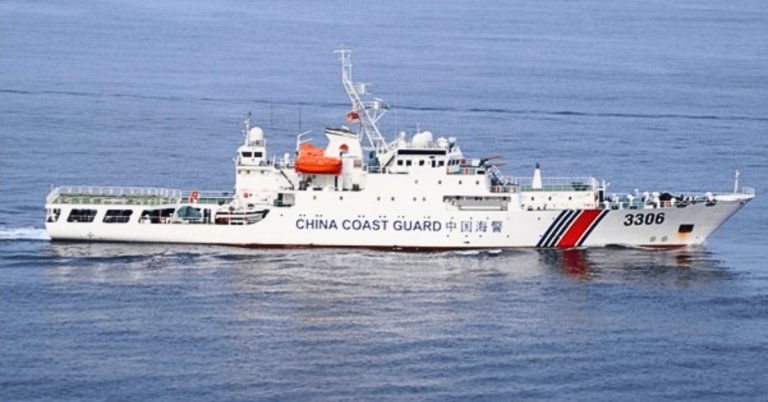The Philippines has stopped a scientific survey in the South China Sea after Chinese Coast Guard and Navy vessels dangerously harassed its fisheries vessels.
On January 24, two Philippine Bureau of Fisheries vessels were heading to Sandy Cay, near Philippine-occupied Thitu Island, to collect sand samples for a marine scientific survey.
However, three Chinese coast guard vessels and four smaller boats approached the Filipino vessels and made aggressive maneuvers, the Philippine Coast Guard stated.
A Chinese navy helicopter hovered at an unsafe altitude over the inflatable boats. In response, the survey was suspended due to the “continuous harassment and disregard for safety” by Chinese maritime forces.
The Filipino vessels were unable to collect sand samples from the sandbars near Thitu Island, about 430 kilometers from the Philippine Island of Palawan and over 900 kilometers from China’s nearest major landmass, Hainan Island.
China’s Coast Guard issued a statement claiming “indisputable sovereignty” over the Spratly Islands, including Sandy Cay, which it refers to as Tiexian Reef.
Chinese officials said that the Philippine vessels had entered the waters near Tiexian Reef without permission and accused them of attempting to “illegally” land on the reef to collect sand samples. They added that Chinese forces intercepted the vessels and drove them away per their laws.
The Subi Reef, near Thitu Island, is already garrisoned by Chinese forces. Philippine forces, however, resupplied and rotated troops stationed on the Sierra Madre, a derelict navy vessel intentionally grounded on the Second Thomas Shoal to assert the Philippines’ territorial claims.
In recent months, the Philippines has raised concerns over China’s increasing maritime activities, including patrols near its main island of Luzon.
However, China has denied these allegations, saying that its patrols are conducted “in accordance with the law.”
The South China Sea, which has also been claimed by the Philippines, Indonesia, Malaysia, and Vietnam, is a vital waterway through which $3 trillion in global trade passes annually.
In 2016, an international arbitration tribunal ruled that China’s claims based on historic maps had no basis under international law-a decision that Beijing refuses to recognize.
Despite the tensions, China and the Philippines held talks on January 16 to manage their disagreements over the South China Sea.
References: AlJazeera, FirstPost

